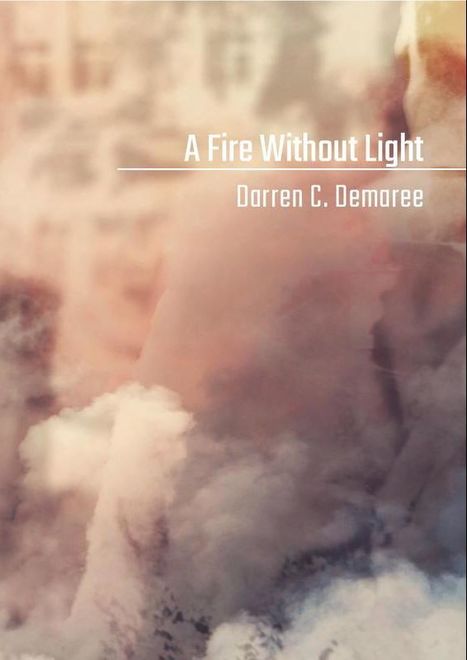|
The Breadcrumbs widget will appear here on the published site.
Smoke on the HorizonIt’s no surprise that major sociopolitical changes lead to an influx of art. An event like the election of Donald Trump has produced a plethora of art as both resistance and a response to the changing times. For writers, this often means writing down their thoughts on new legislation, the president’s Twitter account, and any other actions by his administration. It's a form of catharsis and an outlet for any feelings they have, positive or negative, and in a way that can add to the discussion or create something meaningful. In his new prose poetry collection, A Fire Without Light, writer Darren C. Demaree shares several short poems he’s written since Trump was elected president. These poems are all titled “A Fire Without Light” and then numbered, with the numbers not following any specific sequential order. According to the acknowledgements section at the end, each of the “Fires” (as I will call them) has been published in one of numerous publications (including three in Quail Bell Magazine), showing the spread and reach of these Fires, while also showing how often Demaree’s thoughts on the president needed to be put to the paper. In each of the pieces, Demaree finds a new way to channel his frustrations, fears, and thoughts on the administration into short prose poems. The poems seems to be written in a certain order and do start to change over time. In the beginning, the poems are about more abstract fears about Trump’s presidency. #4 asks the reader to “imagine the outcome is camps,” a thought many people had when Trump’s rhetoric began to speak of border walls and travel bans. #15 asks if the president, being a businessman, is just looking for more money, saying “We could buy him. Why don’t we just pay the man? That’s what he wants.” As the Fires begin to climb in quantity, Demaree’s fears become more personal. He begins to think of his children more and more. He mentions the election outcome in Ohio, where he resides, and continually addresses the masses in Ohio. He thinks about the people around him who may have put Trump in the White House, and wonders how they will handle what will come from America. It’s notable that Demaree’s writing becomes a lot angrier and directly insulting as the book progresses. He starts to drop more foul language in his writings, and his descriptions turn a lot more dark and disturbing. For Fires #352-354, he continually mentions violence against protesters, starting each poem with “Last night in Ohio they used pepper-spray on protesters.” For the reader, this brings up memories of violence at Black Lives Matter events and other similar protests. For Demaree, these later poems turn to direct criticism and offers to change the country for the better, not in Trump’s vision, but to explore new paths that don’t repeat the mistakes of the past in the name of making America “great again.” Even with this rising frustration, Demaree never loses his poetic nature. A lot of these pieces draw on natural imagery and colors when describing America and the country, something fitting for a president who refers to the nation’s capital as a “swamp.” A lot of these images evoke plants growing, dying, or being perverted by devastation and changes with time. Demaree tries to lose himself in nature, but even admits that nature has its limits and, much like the political nature of our country, can easily change and lose control. A Fire Without Light is a poetry collection that sums a father’s worries and woes for the state of the country. In his series of poems, Demaree beautifully crafts a dark and vivid depiction of the Trump presidency. But even though it's dark, Demaree doesn't want to wallow in his fears and worries. He's chosen his craft to be his weapon against the faults he finds with this administration, and it becomes clear that as long as Trump remains president, the number of “Fires” will keep growing. CommentsComments are closed.
|
|








